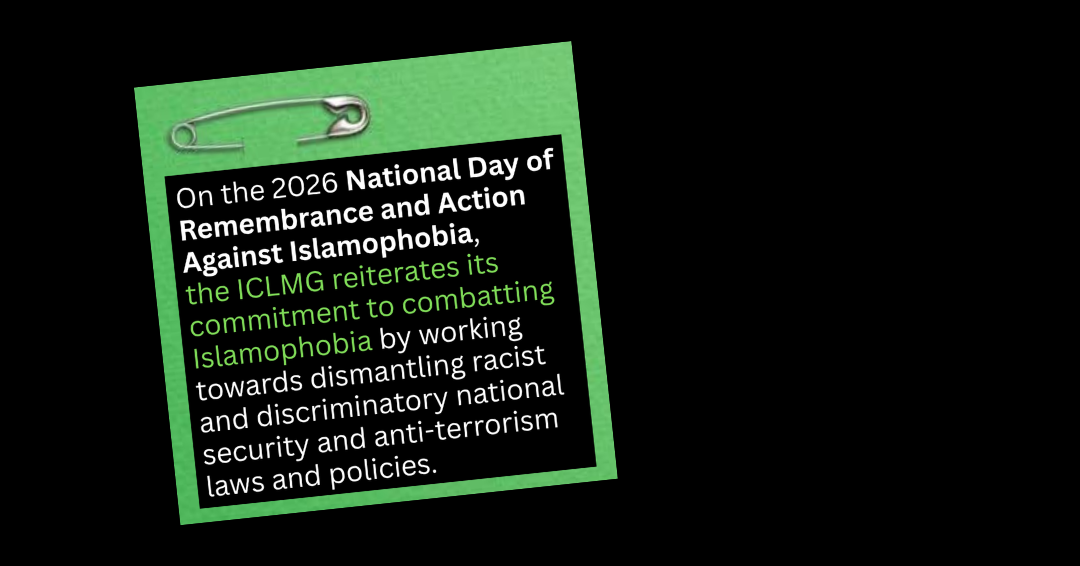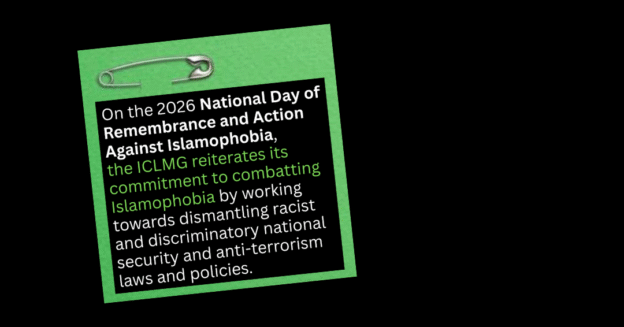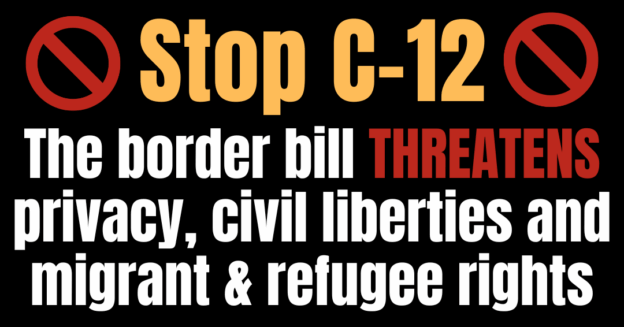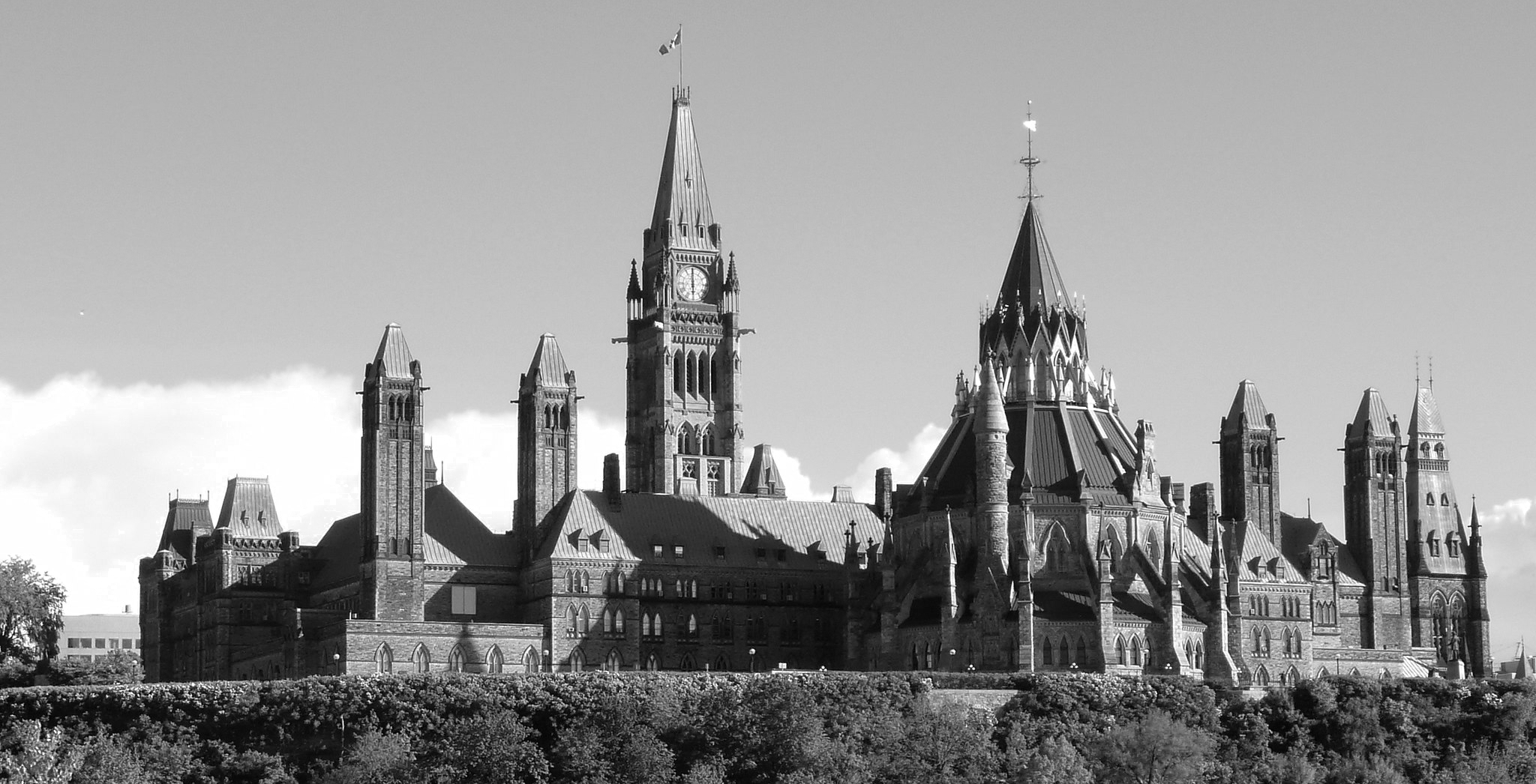
Today, January 29th, 2026, we remember the victims of the deadly 2017 attack on the Quebec City Mosque: Mamadou Tanou Barry, Ibrahima Barry, Khaled Belkacemi, Aboubaker Thabti, Abdelkrim Hassane, and Azzeddine Soufiane, along with the survivors, including Aymen Derbali, and their loved ones. Today also marks the National Day of Remembrance and Action Against Islamophobia, so we also remember the Afzaal family, murdered in London, Ontario, and all victims of crimes motivated by Islamophobia.
In our coalition’s work to counter the harmful impacts of anti-terrorism laws, we see how tropes and stereotypes drive xenophobia and Islamophobia. We also see how Canadian government laws and actions, under the guise of combating terrorism, continue to result in the targeting, surveillance, othering and criminalization of Muslim communities, further entrenching Islamophobia. This includes the ongoing and unjustified impacts of counter-terrorist financing efforts on Muslim-led charities as well as international aid organizations working in Muslim-majority countries, undermining crucial support and services both at home and abroad.
We are also particularly alarmed by the actions of governments at all levels that threaten freedom of expression by limiting protest and dissent, and that have been aimed specifically at Palestinians and those who support Palestinian human rights and oppose the genocide in Gaza, and at Muslim communities more broadly.
This includes the introduction of Bill C-9, the so-called Combatting Hate Act. The proposed legislation is supposedly aimed at preventing hate crimes but instead threatens the freedom of expression, freedom of assembly and right to dissent of all people in Canada, including those communities that the government says it wishes to protect.
While it is clear that more needs to be done across Canada to prevent violence motivated by hate, this cannot be accomplished through legislation or enforcement activities that label entire communities or movements as violent or as in support of terrorism. Such efforts must ensure that they do not further entrench Islamophobia or anti-Palestinian racism; disappointingly, many government efforts are currently failing at this task.
On today’s day of remembrance and action, we remind officials not only of the importance of tackling individual acts of Islamophobia and hatred, but that they must also address systemic racism and Islamophobia that exists within government, law enforcement and national security agencies.
The International Civil Liberties Monitoring Group remains committed to combatting Islamophobia by working towards dismantling racist and discriminatory national security and anti-terrorism laws and policies, including by:
- Countering government officials’, politicians’ and the media’s continued false portrayal of Muslims, including refugees and migrants, as a “security threat”;
- Protecting the civil liberties of those who protest human rights abuses, including in support of Palestinian human rights;
- Rescinding national security programs that reinforce systemic Islamophobia, including the No Fly List and other border measures; the Terrorist Entities List; security certificates; and others;
- Advocating for justice for Canadian Muslims who have and continue to face the disproportionate brunt of anti-terrorism policies and the “War on Terror,” including Mohamed Harkat and his fight against deportation to torture in Algeria;
- Supporting Hassan Diab’s quest for justice and against a new extradition to France; Abousfian Adbelrazik, still fighting for justice regarding Canada’s complicity in his detention and torture in Sudan; and the repatriation of Canadian men, women and children in indefinite detention in northeastern Syria;
- Ending the CRA’s unfounded and prejudiced targeting of Muslim charities; and much more.
We will continue to work tirelessly with our coalition members and community partners to fight Islamophobia, racism, and all forms of hate, along with human rights and civil liberties abuses, in Canada and abroad.
To learn more about the origins, impacts and what you can do about Islamophobia in Canada, visit our resource page at: https://iclmg.ca/resources-against-islamophobia/
For more on the National Day of Remembrance and Action Against Islamophobia, visit:







